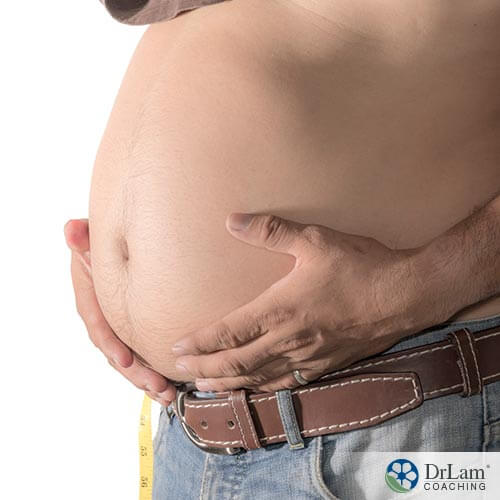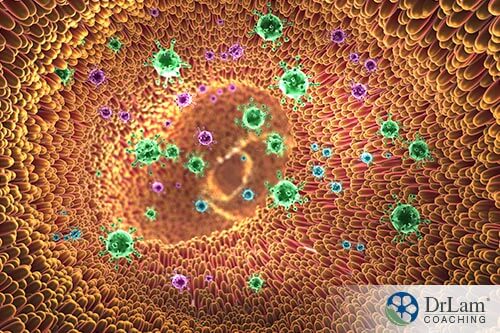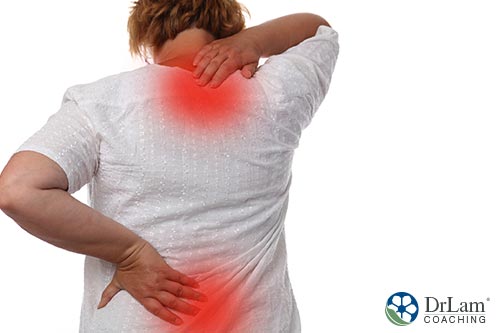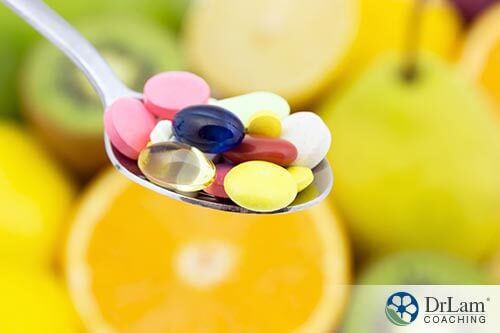 It almost sounds like a futuristic scene out of some sci-fi fantasy film—scientist creates a pill that changes obesity and gut bacteria imbalances for the better. As crazy as it may sound, Dr. Jonathan Mark Brown and his team at the Cleveland Clinic Lerner Research Institute have been researching just that—whether altering your digestive bacteria could be transformed into a pill to prevent weight gain.
It almost sounds like a futuristic scene out of some sci-fi fantasy film—scientist creates a pill that changes obesity and gut bacteria imbalances for the better. As crazy as it may sound, Dr. Jonathan Mark Brown and his team at the Cleveland Clinic Lerner Research Institute have been researching just that—whether altering your digestive bacteria could be transformed into a pill to prevent weight gain.
Dr. Brown and his team are specifically looking at Trimethylamine N-oxide (TMAO), a chemical produced by gut bacteria when certain proteins are digested in the stomach and small intestine. These proteins contain substances such as l-carnitine, lecithin, choline, which are found primarily in animal proteins like meat, fish, eggs, and dairy. While healthy, these substances can also be problematic when broken down into excessively high levels of TMAO.
Marine biologists have known about TMAO for a long time. The chemical protects marine animals, such as fish and sharks, against waste and by-products like urea and also helps deep-sea creatures remain buoyant.
During normal digestion, once your gut bacteria digests protein, TMAO is formed and sent to either tissue for storage or the kidneys for excretion in your urine. The amount of TMAO produced is based on several factors including your diet, liver health, gut bacteria, and kidney function.
Numerous studies have shown that if your kidneys are inflamed (as is the case with chronic kidney problems) or are not working optimally, the amount of TMAO in your blood increases.
Having a high level of TMAO in your body is associated with several health conditions, including heart disease, high blood pressure, kidney disease, cancer, stroke, and diabetes. And certain types of gut bacteria composition are also connected with increasing the levels of this compound. Because many of these conditions are also closely connected with obesity, modulating gut bacteria and lowering TMAO levels may also help lower obesity. This forms a link between obesity and gut bacteria.
 TMAO is made when trimethylamine is combined with oxygen in the presence of two liver enzymes: flavin-containing monooxygenase 1 and 3 (FM01 and FM03). The lack of the FM03 enzyme in rats gives them a free pass to eat a high-calorie diet without gaining weight, but this is not feasible in humans.
TMAO is made when trimethylamine is combined with oxygen in the presence of two liver enzymes: flavin-containing monooxygenase 1 and 3 (FM01 and FM03). The lack of the FM03 enzyme in rats gives them a free pass to eat a high-calorie diet without gaining weight, but this is not feasible in humans.
In humans, the FM03 enzyme is increased in cases of obesity and insulin resistance. When FM03 was deleted from mice, it allowed them to eat a high-fat diet without gaining weight, showing a clear link between obesity and gut bacteria processes. However, the exact mechanisms of this process are not fully known at this time.
A number of studies have demonstrated a correlation between heart problems and high levels of TMAO; however, there have also been contradictory studies. After a heart attack, transient ischemic attack (TIA), or stroke, high levels of TMAO are not always present. So, while the compound may be a risk factor for future problems, it is not solely responsible for negative outcomes.
How your body deals with sugar and blood glucose can also be affected by TMAO. According to studies in mice, TMAO worsened problems metabolizing glucose in mice that were already predisposed to this condition. This means one effect of high TMAO levels can be insulin resistance, when you have too much glucose in your blood but your body can't produce enough insulin to get the glucose into cells for use. The pancreas attempts to deal with rising glucose levels by producing more and more insulin. However, insulin receptors are no longer able to process the excess glucose. This leads to increasing blood sugar levels and eventually, blood sugar control issues and diabetes.
Since the amount of TMAO in your body is directly affected by gut bacteria, using an antibiotic has been suggested. To test this theory, a broad-spectrum antibiotic was administered to certain patients. However, after ceasing the medicine, the high levels of bacteria simply returned one month later. So due to the long-term requirement for use and risks of antibiotic resistance, the idea is not widely accepted.
Reducing your dietary intake of animal products that are high in carnitine and choline could also significantly lower TMAO levels. Increasing your resveratrol intake, a polyphenol present in grapes, berries, and wine, has also been shown to reduce cholesterol build-up in arteries and improve gut bacteria.
Finally, while TMAO is important for marine animals, studies have yet to show any benefits for humans. More research is still required to determine why the human body creates this substance. It may be a way of dealing with increased stress and helping to ward off various problems, rather than only causing increased inflammation and infection. Also, we don’t yet know whether altering the microbiome causes any hidden side effects. Addition questions like “does TMAO have other implications on the vital organs?” still need to be answered.
Inflammation may play a role in how TMAO causes health problems in the body.
 When your body recognizes stress, it utilizes your NeuroEndoMetabolic (NEM) stress response system in an attempt to cope with stress by activating various organ pathways. For example, the response may appear as localized inflammation or may activate multiple organs causing them to produce hormones that can provide a variety of different responses throughout your body.
When your body recognizes stress, it utilizes your NeuroEndoMetabolic (NEM) stress response system in an attempt to cope with stress by activating various organ pathways. For example, the response may appear as localized inflammation or may activate multiple organs causing them to produce hormones that can provide a variety of different responses throughout your body.
The inflammation circuit is responsible for fighting invaders, toxins, and addressing injuries. There are two kinds of inflammation.
In acute inflammation, such as around an injury, pain is usually noticed first, then redness and increased heat and swelling in the area. These symptoms are expected and although they may seem annoying at the time, provide vital functions. The pain may be due to the injury itself or increased pressure on the sensory nerves from the swelling. Increased redness, heat, and swelling are just your body sending nutrients and immune fighters to the area to help clear away the infection and debris.
The causes and symptoms of long-term (chronic) inflammation, however, are harder to detect, particularly when the areas of inflammation are internal and may be caused by things other than a simple hangnail.
Chronic inflammation can come from:
When your symptoms are not related to an obvious injury, they can become vague and complicated. Symptoms can include difficulty thinking, stomach bloating, irritable bowel issues like constipation and diarrhea, dizziness, and the inability to lose weight.
Without properly assessing your body, worsening obesity and gut bacteria imbalances become a constant struggle. High TMAO levels are associated with several conditions that are known to be connected to chronic inflammation. Eating a diet low in animal proteins and high in anti-inflammatory foods like fruits and vegetables, is often recommended as a remedy for many of these health conditions. This could help you lose weight as well.
The more your body is stressed and the more times your NEM response is activated, the more likely you will be to develop Adrenal Fatigue Syndrome (AFS). Your body can only take so much stress before it becomes overloaded and the proverbial “straw that broke the camel’s back” destroys you.
Adrenal fatigue may be one of the most common reasons for abnormal fatigue and the inability to perform normal activities. Internal symptoms begin to show up on the outside with things like depression and allergies suddenly becoming a problem when they were not previously an issue, as well as decreased sexual desire and drive, difficulty thinking, and an inability to lose weight.
These symptoms have a multitude of names and can mimic various cancers and conditions. It’s not uncommon for individuals to bounce from doctor to doctor, being given multiple tests, trying out numerous prescriptions, and still coming up with no real explanation. This often leads to feeling discouraged and worsening depression and anxiety due to all the unanswered questions.
There are some steps you can take to help your body heal from obesity and gut bacteria imbalances.
As simple as it may sound, you need to start with the basics by eating a safe and healthy diet. Consuming healthy foods will help you avoid some of the chemicals that increase inflammation. Then, your body can heal and you’ll return to a more natural weight.
Foods that increase TMAO are generally animal protein products like meat, dairy, eggs, and fish. So avoiding these foods may help. Additionally, opting for more fruits and vegetables may lower levels of inflammation and can also help you lose weight.
 Adding appropriate supplements can also be useful. Vitamins C, D, E, and B5 are a good start. Other good options include glutathione, natural steroids, and various herbs, such as ginseng and ginger. However, it’s best to seek the advice of a qualified healthcare professional before taking any supplements, especially if you are suffering from the advanced stages of Adrenal Fatigue.
Adding appropriate supplements can also be useful. Vitamins C, D, E, and B5 are a good start. Other good options include glutathione, natural steroids, and various herbs, such as ginseng and ginger. However, it’s best to seek the advice of a qualified healthcare professional before taking any supplements, especially if you are suffering from the advanced stages of Adrenal Fatigue.
The next step is to make sure you’re getting adequate rest at night. The right amount of sleep is more important than following the typical guidelines of 5-7 hours per night. Going to bed at 10 pm and getting up at 8 am is ideal. If you stay up late, your adrenal glands have to work harder instead of resting. Removing caffeine found in coffee and tea and turning off the television and all electronic devices a few hours before bedtime will help prepare your body and mind for sleep.
For those struggling with obesity and gut bacteria imbalances, altering your stomach microbiome may not be an option just yet since research is still in the early stages. Taking a pill to stop the formation of TMAO would be ideal, but one does not exist yet. This could be the future of TMAO research regarding obesity and gut bacteria, but in the meantime, diet, exercise, sleep, and reducing stress levels may be the best path to managing obesity.

Preventing or properly handling obesity and gut bacteria imbalances when they occur is so important. If you can prevent the activation of inflammation pathways before they start, you may be able to avoid serious conditions like heart disease and diabetes. Until a pill to address obesity can be developed, a healthy diet and reducing inflammation are some of the best options available to enable smooth sailing and better health in your future.
As simple as it sounds, you need to start with the basics by eating a safe and healthy diet. Consuming healthy food can help you avoid chemicals that can increase inflammation. Then, your body can heal properly and you can return to a more natural weight.
